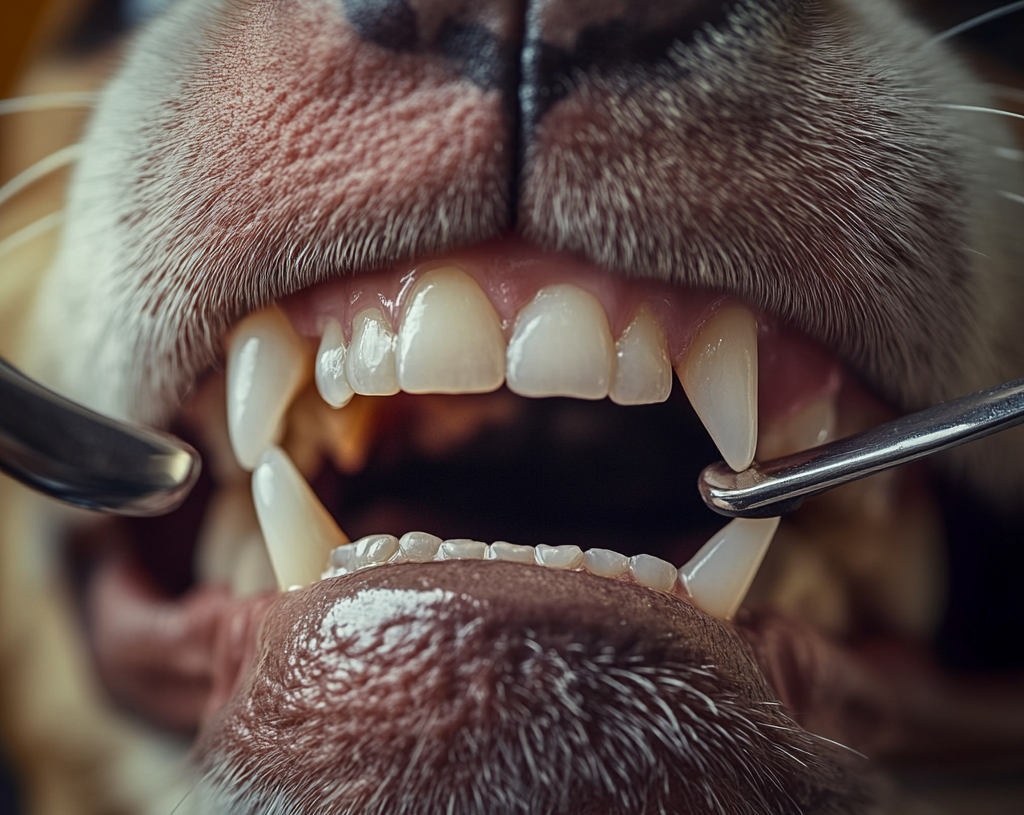Dental disease in dogs is a common but preventable condition that affects many pets. Learn how to recognize, treat, and prevent dental issues in dogs with this comprehensive guide.

Table of Contents
- What is Dental Disease in Dogs?
- Causes of Dental Disease in Dogs
- Signs and Symptoms of Dental Disease in Dogs
- How to Prevent Dental Disease in Dogs
- Best Ways to Treat Dental Disease in Dogs
- Common Treatments for Severe Dental Disease in Dogs
- Dental Health and Its Impact on Overall Pet Health
- How Regular Vet Checkups Help in Preventing Dental Disease
- Home Remedies and Tips for Preventing Dental Disease in Dogs
- Dental Disease and Your Dog’s Diet: What You Need to Know
- Conclusion: Keeping Your Dog’s Teeth Healthy
1. What is Dental Disease in Dogs?
Dental disease in dogs, also known as periodontal disease, is a serious condition that affects a dog’s teeth and gums. It starts with the buildup of plaque and tartar, which can lead to gingivitis, tooth decay, and even tooth loss. If left untreated, dental disease in dogs can progress to more severe stages, affecting not only the mouth but also the overall health of your pet.
2. Causes of Dental Disease in Dogs
The primary cause of dental disease in dogs is poor oral hygiene. Plaque and tartar build up when food particles and bacteria accumulate along the gum line. Other factors that can contribute to dental disease in dogs include genetics, age, diet, and the lack of regular dental care.
3. Signs and Symptoms of Dental Disease in Dogs
It’s essential to be able to spot the signs of dental disease in dogs early on to prevent more serious issues. Common symptoms include:
- Bad breath (halitosis)
- Yellow or brown tartar buildup on teeth
- Swollen, red, or bleeding gums
- Difficulty eating or chewing
- Drooling more than usual
- Pawing at the mouth
If your dog exhibits any of these symptoms, it’s time to schedule a vet visit.
4. How to Prevent Dental Disease in Dogs
Preventing dental disease in dogs is much easier than treating it once it’s advanced. Some of the best ways to prevent dental issues include:
- Brushing your dog’s teeth regularly: Use dog-specific toothpaste and toothbrushes to brush their teeth at least 2–3 times a week.
- Dental chews and toys: Providing your dog with dental chews or toys can help break down plaque and keep their teeth clean.
- Regular vet checkups: Annual dental exams can help spot early signs of dental disease.
- Professional cleanings: Many vets offer professional cleaning services that go beyond what can be done at home.
5. Best Ways to Treat Dental Disease in Dogs
If your dog already has dental disease, prompt action is crucial. Here are some treatment options:
- Scaling and polishing: A professional vet cleaning involves scaling off plaque and tartar from your dog’s teeth, followed by polishing.
- Antibiotics: If your dog has an infection, your vet may prescribe antibiotics to treat the infection.
- Tooth extraction: In severe cases where teeth are beyond saving, the vet may need to extract the affected teeth.
- At-home care: In addition to professional treatment, maintaining a consistent oral hygiene routine at home will help prevent future issues.
6. Common Treatments for Severe Dental Disease in Dogs
In severe cases of dental disease in dogs, the situation can become complicated. Your vet may recommend one or more of the following treatments:
- Full mouth cleaning: In cases of advanced dental disease, a full-mouth cleaning under anesthesia may be necessary.
- Surgical procedures: Sometimes, surgical intervention may be required if teeth or gums are severely infected or damaged.
- Post-surgical care: After surgery, your dog may require pain management, a special diet, and antibiotics to prevent infection and promote healing.
7. Dental Health and Its Impact on Overall Pet Health
Dental disease in dogs doesn’t just affect their mouth. It can lead to more severe health issues. The bacteria from infected teeth can travel through the bloodstream, potentially affecting vital organs like the heart, liver, and kidneys. This makes it essential to prioritize dental care as part of your dog’s overall health regimen.
8. How Regular Vet Checkups Help in Preventing Dental Disease
Regular vet checkups are key in catching dental issues early. Vets can monitor your dog’s oral health, perform professional cleanings, and offer advice on at-home dental care. The earlier a problem is detected, the easier it is to treat, reducing the need for expensive and invasive treatments down the line.
9. Home Remedies and Tips for Preventing Dental Disease in Dogs
While professional care is essential, there are things you can do at home to prevent dental disease in dogs:
- Dental water additives: These can be added to your dog’s drinking water to help reduce plaque buildup.
- Regular tooth brushing: Brushing your dog’s teeth with dog-safe toothpaste is the most effective way to keep their mouth healthy.
- Healthy diet: A balanced, nutritious diet can contribute to better oral health.
10. Dental Disease and Your Dog’s Diet: What You Need to Know
Your dog’s diet plays an important role in preventing dental disease. High-quality kibble can help reduce plaque buildup, while soft or wet food can contribute to plaque formation. Additionally, some dog foods are specifically formulated to promote dental health.
11. Conclusion: Keeping Your Dog’s Teeth Healthy
Dental disease in dogs is common, but with proper care, it is preventable. By brushing your dog’s teeth regularly, offering appropriate chew toys, scheduling regular vet visits, and paying attention to their diet, you can significantly reduce the risk of dental disease and improve their overall health.
For more pets related articles, click here: https://ledstk.com/category/pets/
For recipes lovers, see here: https://sotastyrecipe.com
